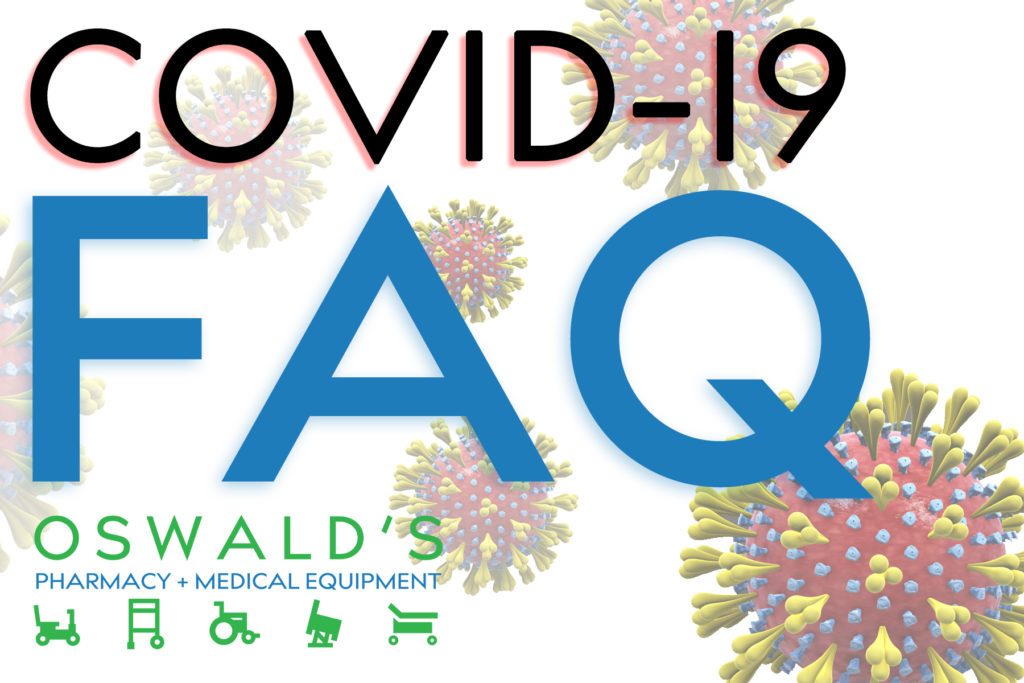Our pharmacists have been getting bombarded by questions regarding the coronavirus. We’ve compiled a list of the most frequently asked coronavirus questions and had our Pharmacists answer them!
What precautions can I take to avoid the coronavirus?
- Prevention: https://www.cdc.gov/coronavirus/2019-ncov/about/prevention-treatment.html
- Washing your hands with soap and water for at least 20 seconds after going to the bathroom, after sneezing, coughing, or blowing your nose, and before eating.
- Keep your hands away from your face. Try not to touch your eyes, nose, and mouth without washing your hands first.
- Cough and sneeze into your elbow and wash your hands right after.
- Stay away from sick people and stay home if you are sick.
- Disinfect frequently used objects, such as cell phones, doorknobs, light switches, etc.
- Wearing a facemask will not protect you from coronavirus. See below.
Will wearing a mask protect me from the coronavirus?
- No, a mask will not protect you from the coronavirus. Medical masks do not fit tightly and can allow tiny droplets to get into your mouth, nose, or eyes. Masks are primarily meant to be worn by people who are already sick to prevent them from transmitting an illness to others.
What are the best masks to protect me from the coronavirus?
- N95 masks are only meant for healthcare professionals who take care of sick patients. These masks are only effective if fitted properly and only healthcare professionals are fit tested.
What is the best hand sanitizer for coronavirus protection?
- The effectiveness of hand sanitizer depends on how it is used and what it is used for. For example, hand sanitizer is generally not effective against non-enveloped viruses (like norovirus, aka stomach flu), bacterial spores, and some parasites.
- When used correctly, hand sanitizers are potentially effective against some enveloped viruses (influenza A, coronaviruses), some bacteria, and some fungi. Hand sanitizer should be rubbed on hands for 30 seconds and then allowed to air dry. Hand sanitizer does not work on visibly soiled hands, so you would need to wash your hands if they are visibly soiled.
- If you’re looking for a hand sanitizer that is effective against coronavirus, pick one that has between 60-95% alcohol composition. Some hand sanitizers only have antibacterial components, which won’t help protect you from a virus.
Do Hand Sanitizers Help Fight Coronavirus?
- Standard, alcohol-based hand sanitizers work against COVID-19, MRSA, influenza, hepatitis B, E. coli, hepatitis C, zika, HIV, pseudomonas aeruginosa, tuberculosis, MERS, Ebola, and SARS.
- Standard, alcohol-based hand sanitizers do not work against norovirus (stomach flu), hand, foot, and mouth disease, poliovirus, hepatitis A, or C. dif (a severe form of diarrhea).
Will disinfectant wipes or solutions help fight the coronavirus?
- The EPA has put together a list of disinfectants that will help fight coronavirus.
What are the symptoms of coronavirus?
- Symptoms generally occur 2-14 days after exposure to the virus and include fever, cough, and shortness of breath.
What should I do if I think I have the coronavirus? When should I see a doctor about the coronavirus?
- Call your doctor if you develop symptoms and have either been in close contact with a person known to have COVID-19 or if you have recently traveled in or from an area with an ongoing COVID-19 infection.
Is there a vaccine for the coronavirus?
- There is currently no vaccine for the coronavirus and there won’t be for at least a few months to years.
Will any over-the-counter medicines or vitamins help fight the coronavirus?
- Washing your hands and staying away from people who are sick are the best ways to prevent you from getting coronavirus, but some over the counter medications may help manage symptoms if you do get the virus. Ask your pharmacist for more information or recommendations.
Should we be worried about products shipped from China?
- According to the CDC: “In general, because of poor survivability of these coronaviruses on surfaces, there is likely very low risk of spread from products or packaging that are shipped over a period of days or weeks at ambient temperatures. Coronaviruses are generally thought to be spread by respiratory droplets.”
- “Currently there is no evidence to support the transmission of COVID-19 associated with imported goods and there have not been any cases of COVID-19 in the United States associated with imported goods.”
Links
EPA List of Approved Antimicrobial Products to use Against Coronavirus

